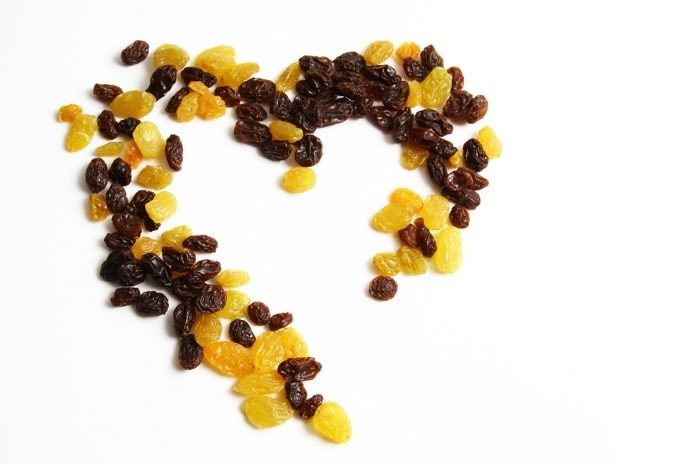Researchers investigated the benefits of dried fruits and how they affect blood sugar spikes when compared to other carbohydrates.
Fruits are widely recommended for achieving stability in health mainly due to their high anti-oxidative effects.
Fruits are rich in vitamins and essential minerals important for ensuring adequate support for growth, repair, detoxification, and immune support needed for stability and longevity.
Food such as rice, white bread, most cereals, potatoes, pasta, beans, lentils, oat grains, and barley are all rich in carbohydrates.
When these carbohydrates are digested in the body, the body processes them as glucose.
Fruits also contain carbohydrates but when they are digested, the end product is fructose. Both glucose and fructose are different forms of sugar absorbed in the blood.
Carbohydrates raise blood sugar levels faster than other food sources
The rate at which the different forms of sugar are released into the blood determines the rate at which the blood sugar rises.
This forms the basis of most sugar-related disease conditions including diabetes, obesity, Cushing’s disease, insulin-resistant conditions, and other metabolic imbalances.
This response termed the glycemic index response, is a way to explain how different sources of carbohydrates affect blood sugar levels.
Studies have shown that some carbohydrates that have a high glycemic index raise blood sugar faster than other food sources.
Food such as potatoes, white bread, and rice may raise blood sugar faster than oat, beans, barley, or pasta because these are digested more slowly resulting in a gradual increase in blood sugar and less demand for insulin.
Fresh fruits have also been found not to raise blood sugar as much as other carbohydrates.
In a recent study published in the journal Nutrition & Diabetes, researchers in Toronto conducted a randomized, multiple cross-over trial involving 10 healthy men and women to investigate how dried fruits can influence the rate at which blood sugar rises when compared with other carbohydrates.
The participants each underwent 15 separate study meals. The meals consisted of three white bread meals (control group) and 12 dried fruit test meals.
The test meals included each of four dried fruits – dates, apricots, raisins, and sultanas.
Some participants received white bread with dried fruits while some received only the dried fruits.
Dried fruits were associated with lower blood sugar spikes
This study found that the individuals who ate white bread with dried fruits had a lower rate of blood sugar spikes (lower glycemic response), and lower after-meal blood sugar spikes (postprandial glycemic response).
This was thought to be due to the ability of fructose (the sugar in dried fruits) to displace sucrose (the sugar in white bread) in the digestive pathway unlike those that received white bread alone who showed higher blood sugar spikes.
Those that had the dried fruits alone had a much lower blood-sugar spike (lower glycemic index).
What did this study end up showing?
This study is in support of previous studies that demonstrated the efficacy of dried fruits in reducing the rate of blood sugar surge and the insulin level following a meal compared to the blood sugar surge in those who ate other carbohydrate meals alone.
This study demonstrated that dried fruits reduce the blood sugar response when taken in combination with white bread and maybe a very promising benefit for those living with diabetes and insulin resistance conditions due to their ability to lower blood sugar spikes.
Dried fruits were found to prevent a surge in blood sugar even when consumed with other carbohydrates and it was also found to be very beneficial in the control of post-meal blood sugar spikes.
Longer trials are needed to confirm if dried fruits can be used in diabetes management
In conclusion, the researchers determined that dried fruits have a strong component for the regulation of blood sugar and they do not raise blood sugar as much as other carbohydrates.
They can also displace the glycemic effect of other carbohydrates when taken together.
Therefore, the use of dried fruits should be employed in the management of those living with diabetes or a prediabetic state.
However, the researchers suggested the need for a longer-term trial to confirm if dried fruits can offer a sustainable improvement in blood sugar control and management of diabetes and prediabetic state.
Written by Ijeoma C. Izundu, MBBS
References:
- Viguiliouk E, Jenkins A, Blanco Mejia S, Sievenpiper J, Kendall C. Effect of dried fruit on postprandial glycemia: a randomized acute-feeding trial. Nutrition & Diabetes. 2018;8(1).
- A study finds four dried fruits have a lower glycemic index (GI) than white bread [Internet]. EurekAlert!. 2019 [cited 10 December 2018]. Available from: https://www.eurekalert.org/pub_releases/2018-12/smh-sff121018.php



